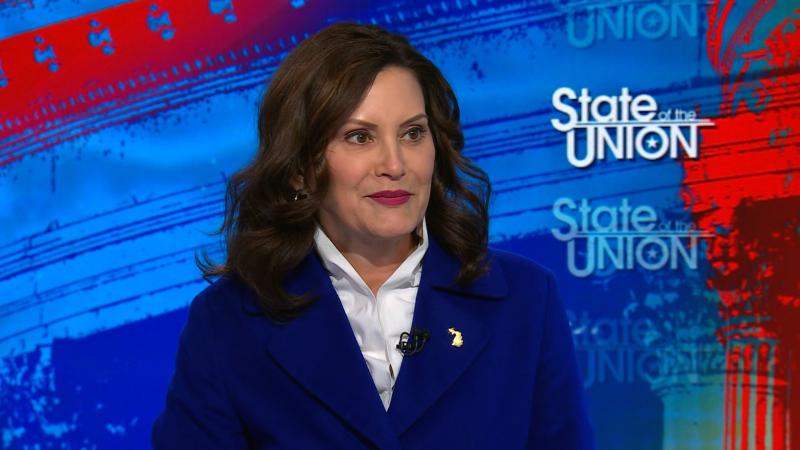Harris loses ground with Black voters 3 weeks from Election Day
While Harris’ support far outpaces Trump’s, Harris support dips lower than President Joe Biden received in 2020 and President Barack Obama did in 2008 and 2012.
Vice President Kamala Harris is struggling to lock in the same overwhelming support from Black Americans that recent Democrats have enjoyed.
Harris received 79% support among Black voters in the latest The Center Square Voters' Voice poll. Harris’ opponent, former President Donald Trump, received 16% support.
Election Day is three weeks away, Tuesday, Nov. 5.
While Harris’ support far outpaces Trump’s, Harris support dips lower than President Joe Biden received in 2020 and President Barack Obama did in 2008 and 2012.
“Black voters remained overwhelmingly loyal to the Democratic Party, voting 92%-8% for Biden,” Pew Research Poll said in an analysis of the 2020 election.
Notably, Obama received 95% of the Black vote when he first ran for president in 2008. Hillary Clinton received about 91% support in her 2016 campaign against Trump. Harris at 79% support lags behind all three former Democratic presidential candidates.
Obama seemed to address Harris’ problem in a recent Pittsburgh rally that drew pushback after he said he needed to “speak some truths.”
“Because my understanding based on reports I’m getting from campaigns and communities is that we have not yet seen the same kind of energy and turnout in all quarters of our neighborhoods and communities as we saw when I was running,” Obama said.
“Now, I also want to say that that seems to be more pronounced with the brothers,” he continued, referring to Black men.
Cities like Pittsburgh, Atlanta, and Detroit have high Black populations that can turn the race one way or the other in the respective swing states of Pennsylvania, Georgia and Michigan.
Obama went on to admonish Black men for their “excuses” for not voting for Harris, essentially confirming the internal Democratic concern over the issue.
“When, on the one hand, you have somebody who grew up like you, knows you, went to college with you, understands the struggles and pain and joy that comes from those experiences, who's had to work harder and do more and overcome and achieves the second highest office in the land and is putting forward concrete proposals to directly address the things that are vital in our neighborhoods and our communities,” Obama said.
Janiyah Thomas, Black Media Director for the Trump campaign, argued the shift in Black voters is because those voters care about the economy and immigration and trust Trump on those issues.
“It’s kind of foul to see Democrats prioritize illegal people over the people that have been invested in that community for decades,” Thomas told The Center Square. “I think it’s like a slap in the face because you never had any resources for the Black people here, but then illegal immigrants come and they get everything they want.”
Harris remains in a close race with Trump in the swing states, too close to call. She also leads him nationally in the popular vote in the same poll and was generally considered the winner of her debate with Trump.
With that debate and Obama’s backing, not to mention endorsements from Taylor Swift and others, Harris has made the race far more competitive than Biden was before he dropped out.
The value of Swift’s endorsement is up for debate, but she does represent a wide swath of women motivated to vote for Harris in light of the abortion issue being returned to the states by U.S. Supreme Court overturning Roe v. Wade.
However, Harris also faces a problem with a smaller demographic, Arab Americans, who have left Democrats for Trump in a sizeable shift, as The Center Square previously reported. A significant portion of Arab Americans and Muslim Americans, who hold notable voting populations in key states like Minnesota and Michigan, have left Democrats for Trump since the Oct. 7 Hamas terrorist attack and following the Israel-Hamas war.
At the same time, Trump has made inroads with Hisapanic voters, and while those gains predate Harris, they could pose a problem for Democrats if the Republican party or Trump’s heir apparent, Sen. J.D. Vance, R-Ohio, is able to keep and build with that voting bloc.
“The country is experiencing a major political realignment that has reshuffled the deck and re-written the traditional ways of thinking,” Colin Reed, a Republican strategist, former campaign manager for U.S. Sen. Scott Brown, R-Mass., and co-founder of South and Hill Strategies, told The Center Square.
“For generations, the Democratic Party was able to count on the automatic support of Black and Hispanic voters without having to do much to earn their votes,” he added. “With his outsider message, focus on immigration and the economy and willingness to upend the status quo, Trump is assembling a new coalition. In what promises to be a very close election, the warning signs are flashing for the Harris campaign if Trump can continue cutting into her margins with voters that have typically been in the bag for the Democrat at this point in the calendar.”
Thomas also argued Trump is getting more “endorsed by the culture,” pointing to endorsements from rappers like 50 Cent.
“I think Black people are starting to see through the Democratic agenda,” she said. “I think the access to information has a lot to do with it,” she continued arguing that younger Black voters are dropping traditional liberal media sources for news on podcasts and social media that doesn’t follow the traditional Democratic lines.
Regarding Obama’s speech, Thomas said "he gave a ‘we’re about to lose' speech.’”
















